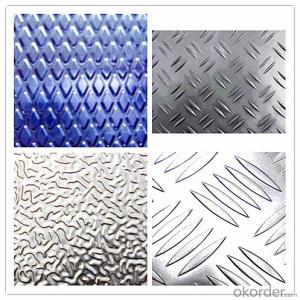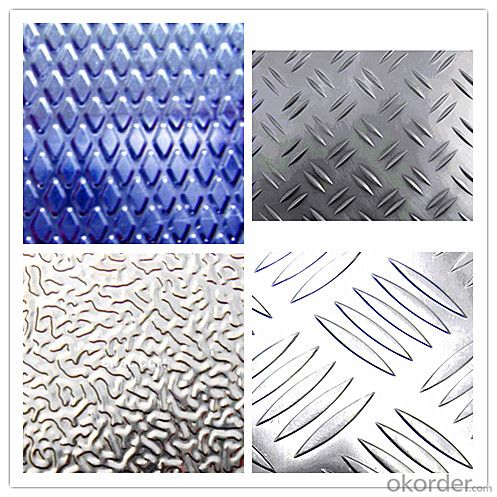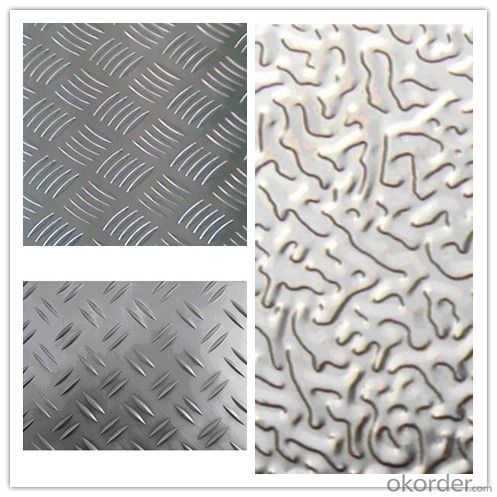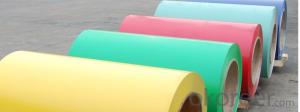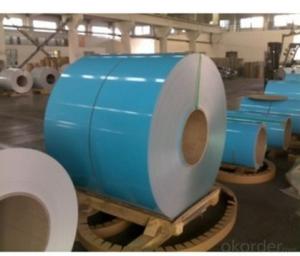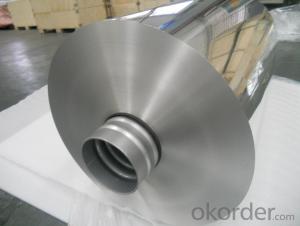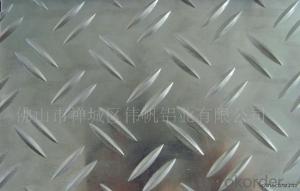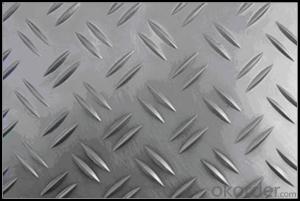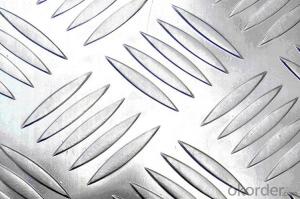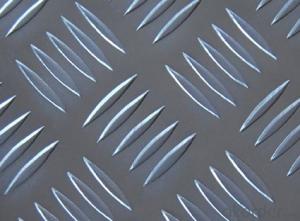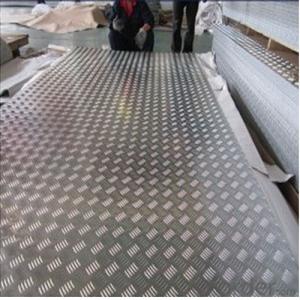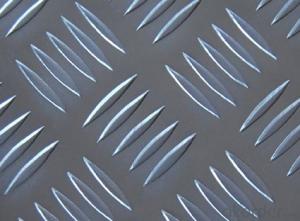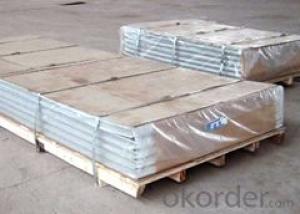Diamondplate Aluminum 5/Five Bar Plate/Sheet
- Loading Port:
- Shanghai
- Payment Terms:
- TT OR LC
- Min Order Qty:
- 5 m.t.
- Supply Capability:
- 100000 m.t./month
OKorder Service Pledge
OKorder Financial Service
You Might Also Like
1.Structure of Aluminum 5/ Five Bar Plate/Sheet :
Aluminum 5/ Five Bar Plate/Sheet is widely used for decorative purposes in construction, packing and appliance. Aluminum 5/ Five Bar Plate/Sheet is also very commonly used for anti-shippery purposes in vehicles and pulic places.
2.Main Features of Aluminum 5/ Five Bar Plate/Sheet :
• Beautiful parten
• Good anti-slippery quanlity
• High manufacturing accuracy
• High strength of extension and yield
• Well packaged
• No marks, no scratch, no excessive oil
3. Aluminum 5/ Five Bar Plate/Sheet
Alloy: 1050, 1060, 1070, 1100, 3003, 3004, 3005, 3105, 5052, 5083, 5754, 8011, 8006
Temper: H14, H16, H18, H22, H24, H26, H32, O/F
Thickness: 0.2mm-20mm
Width: 10mm-1500mm
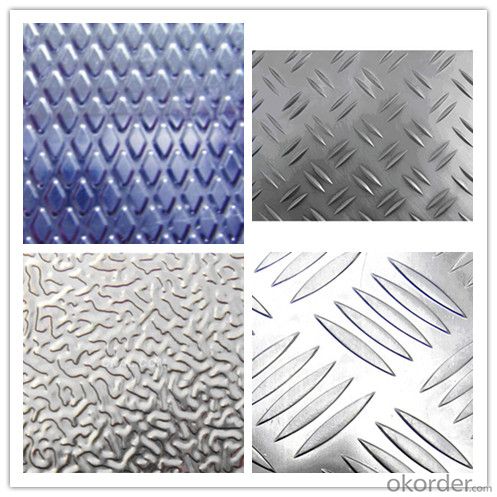
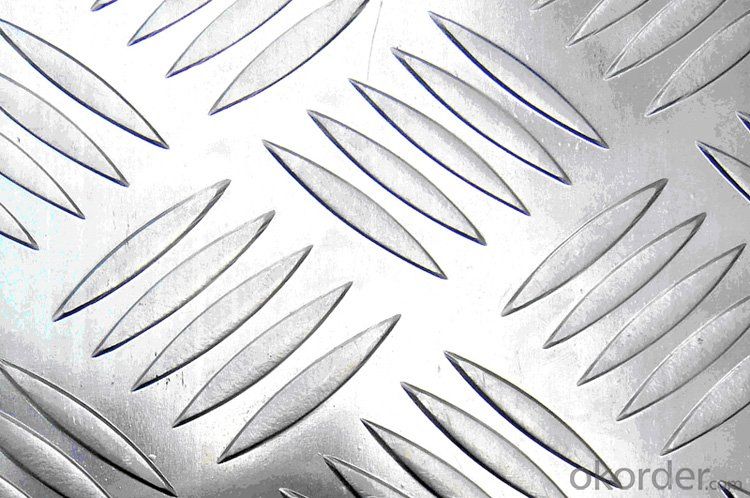
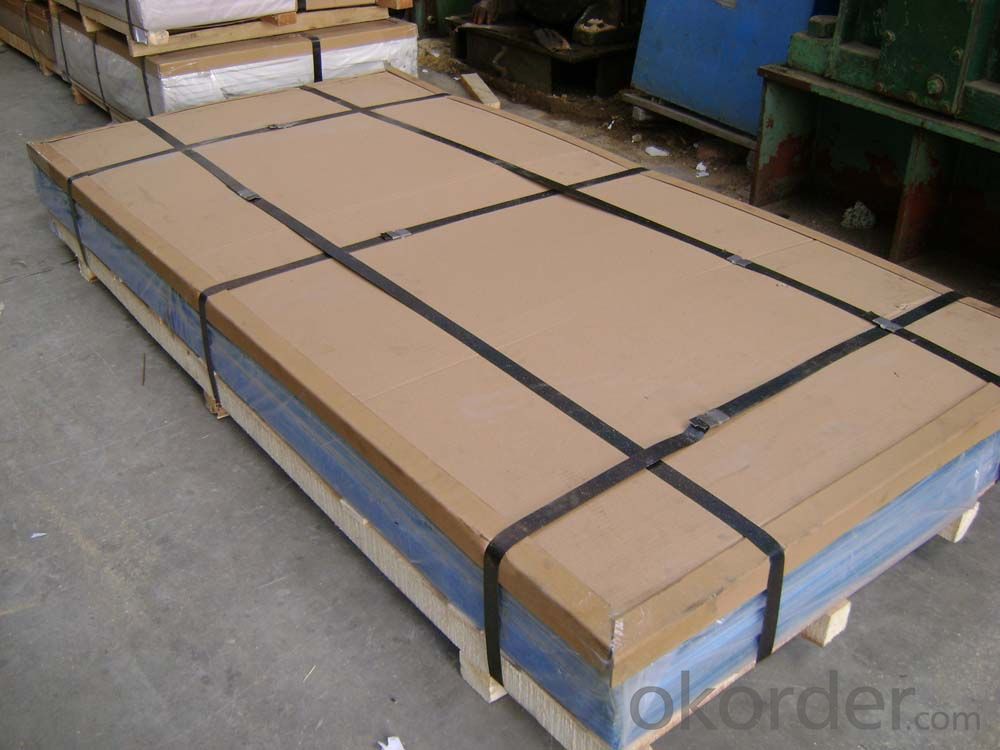
4. Production of Aluminum 5/ Five Bar Plate/Sheet
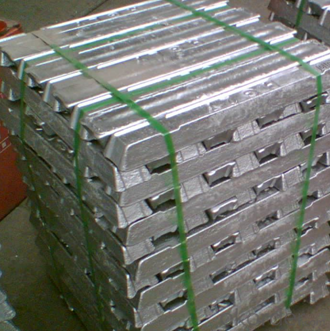
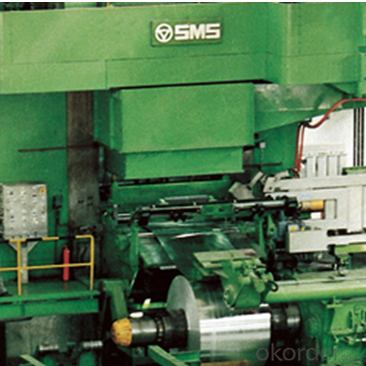
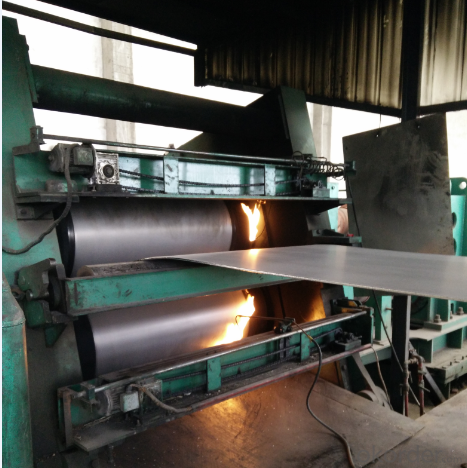
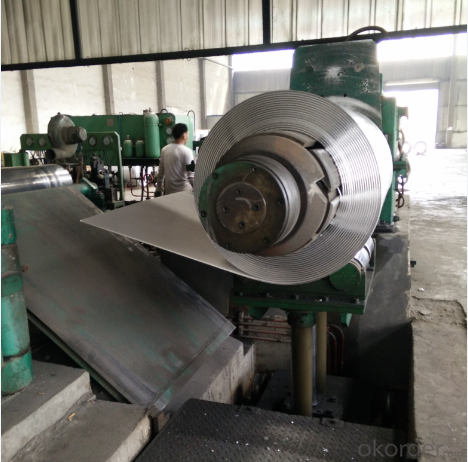
5.FAQ
We have organized several common questions for our clients,may help you sincerely:
① How about your company?
A world class manufacturer & supplier of aluminum coil and alloy blanks. Aluminum production base is comprised of 18 aluminum annealers, 10 coil and foil mills, 4 continuous production lines, 2 hot rolling production line and 3 prepainted lines.
Export 5000 tons per month to Asia, America and Middle East. Always do the best for our clients.
②Can you guarantee the quality of the products?
We are responsible for the quality of materials to get a long-term cooperation with clients in a reasonable period of time and we are glad to arrange and coordinate any third party inspection for you.
③What is the delivery time after purchase?
35 day after receiving client’s deposit or correct LC
- Q: This question asks for a comparison between aluminum sheets and other roofing materials in terms of their characteristics and performance.
- <p>Aluminum sheets are lightweight and highly durable, offering excellent resistance to corrosion and weathering. They are energy-efficient, reflecting heat and reducing cooling costs. Compared to materials like asphalt shingles, aluminum is more expensive but lasts longer, with a lifespan of 40-50 years. Unlike clay or concrete tiles, aluminum is less prone to breakage and is easier to install. It also doesn't rot or warp like wood, and it's fire-resistant. However, it can be noisy during rain and is less visually appealing than some other materials, but its modern and sleek appearance can be a design advantage.</p>
- Q: Are the aluminum sheets suitable for manufacturing lightweight structures?
- Indeed, aluminum sheets are exceptionally well-suited for the production of lightweight structures. Renowned for its low density, aluminum stands as one of the most lightweight metals on the market. This attribute renders aluminum sheets an exceptional option for a multitude of sectors that prioritize weight reduction, such as aerospace, automotive, and construction industries. Furthermore, aluminum boasts an impressive strength-to-weight ratio, enabling it to withstand substantial loads while remaining lightweight. Moreover, aluminum sheets exhibit exceptional corrosion resistance, rendering them suitable for both outdoor and marine applications. All in all, the combination of its lightness, strength, and durability positions aluminum sheets as the preferred choice for the production of lightweight structures.
- Q: Can aluminum sheets be easily shaped or bent?
- Yes, aluminum sheets can be easily shaped or bent due to their malleability and low density.
- Q: How do aluminum sheets compare to other metals?
- Aluminum sheets have several advantages when compared to other metals. Firstly, aluminum is very light in weight, making it an ideal choice for applications where weight is a concern, such as in the aerospace industry. Additionally, aluminum is highly resistant to corrosion, which means it can withstand exposure to moisture and chemicals without deteriorating. This makes aluminum sheets suitable for outdoor use and in environments with high humidity or corrosive substances. Moreover, aluminum has excellent conductivity, both thermal and electrical. This makes it a popular choice for heat sinks, electrical enclosures, and other applications that require efficient heat dissipation or electrical conduction. Furthermore, aluminum sheets can be easily shaped and formed, giving them versatility in various manufacturing processes. They can be bent, cut, welded, and machined with relative ease, making them highly adaptable to different design specifications. In terms of cost, aluminum is generally more affordable compared to other metals like steel or copper. This makes it a cost-effective option for many industries, especially for large-scale production or projects with budget constraints. However, it is important to note that aluminum sheets may not be suitable for applications that require high strength or extreme temperatures, as aluminum has lower strength and melting point compared to certain other metals. In such cases, metals like steel or titanium may be more appropriate. In summary, aluminum sheets offer a combination of lightweight, corrosion resistance, good conductivity, versatility, and affordability that makes them a preferred choice in many industries. However, the specific requirements of a project or application should be considered to determine if aluminum sheets are the best fit or if another metal would be more suitable.
- Q: Is it possible to use aluminum sheets for roofing purposes?
- <p>Yes, aluminum sheets can be used as roofing materials. They are known for their durability, lightweight, and resistance to corrosion. Aluminum is also recyclable and can be coated with various finishes to enhance its appearance and performance. It is a popular choice for both residential and commercial roofing due to its low maintenance requirements and long lifespan.</p>
- Q: Are aluminum sheets suitable for thermal insulation?
- Aluminum sheets, by themselves, are not suitable for thermal insulation. Despite aluminum's ability to conduct heat and electricity well, it lacks sufficient insulating properties. Surprisingly, instead of blocking heat, aluminum sheets can actually transfer it, rendering them ineffective for thermal insulation purposes. To achieve proper thermal insulation, it is common to use materials with low thermal conductivity, such as fiberglass, mineral wool, or foam boards. These materials are specifically engineered to trap air or establish a barrier that minimizes heat transfer, thus ensuring efficient insulation.
- Q: Can the aluminum sheets be used for printing applications?
- Aluminum sheets are indeed suitable for printing applications. Thanks to their smooth and flat surface, aluminum is an excellent choice for printing graphics, images, and text. Various printing methods, including offset printing, screen printing, and digital printing, can be effortlessly employed on these sheets. When opting for aluminum sheets for printing, one can expect durability, resistance against fading and weathering, as well as a polished and sophisticated look. Industries such as advertising, automotive, aerospace, and packaging frequently utilize aluminum sheets for signage, labels, nameplates, and decorative purposes.
- Q: What are the different types of aluminum sheets available?
- There is a variety of aluminum sheets available, each with its own distinct properties and uses. Some of the most commonly used types are as follows: 1. Pure Aluminum Sheets: These sheets are composed entirely of aluminum and are known for their exceptional resistance to corrosion and high thermal conductivity. They are frequently employed in industries where lightweight and durability are crucial, such as aerospace. 2. Aluminum Alloy Sheets: These sheets are produced by combining aluminum with other elements like magnesium, copper, or zinc, in order to enhance specific properties. For instance, aluminum-magnesium alloy sheets (5000 series) possess remarkable strength and corrosion resistance, making them suitable for marine applications. 3. Painted Aluminum Sheets: These sheets are coated with paint or a protective layer, providing additional defense against corrosion and enhancing their visual appeal. They are commonly utilized in architectural projects and signage. 4. Perforated Aluminum Sheets: These sheets are characterized by evenly spaced small holes or perforations across their surface. They are frequently used in situations where airflow or visibility is required, such as HVAC systems, decorative panels, or speaker grilles. 5. Embossed Aluminum Sheets: These sheets feature a raised pattern or design on their surface, achieved through the process of embossing. This not only adds visual interest but also increases the sheet's strength, making it suitable for flooring, vehicle panels, or decorative purposes. 6. Anodized Aluminum Sheets: This type of aluminum sheet undergoes an electrolytic process known as anodizing, which creates a protective layer on the surface. Anodized sheets exhibit high resistance to corrosion and wear, making them ideal for outdoor applications like building facades, window frames, or automotive trim. Before selecting an aluminum sheet, it is crucial to consider the specific requirements of your project. Factors such as strength, corrosion resistance, appearance, and cost should be taken into account to ensure the most appropriate sheet is chosen for the job.
- Q: Can aluminum sheets be used for electronic enclosures?
- Yes, aluminum sheets can be used for electronic enclosures. Aluminum is a lightweight and durable material that offers excellent heat dissipation properties, making it suitable for protecting electronic components. Additionally, aluminum sheets can be easily fabricated to create custom enclosures that provide electromagnetic shielding and protection against environmental factors.
- Q: How do aluminum sheets perform in terms of weather resistance?
- Aluminum sheets possess remarkable properties when it comes to resisting weather. Their innate ability to resist corrosion enables them to endure exposure to various weather conditions without deteriorating or rusting, making them highly suitable for outdoor uses. The natural formation of a protective oxide layer on the surface of aluminum acts as a barrier against moisture, preventing the metal from reacting with oxygen and thereby reducing the risk of corrosion. Moreover, aluminum sheets exhibit a high resistance to UV radiation, which means they can withstand prolonged exposure to the sun without fading or discoloration. In conclusion, aluminum sheets exhibit outstanding weather resistance and are a dependable choice for a wide range of outdoor applications, such as roofing, siding, and outdoor signage.
Send your message to us
Diamondplate Aluminum 5/Five Bar Plate/Sheet
- Loading Port:
- Shanghai
- Payment Terms:
- TT OR LC
- Min Order Qty:
- 5 m.t.
- Supply Capability:
- 100000 m.t./month
OKorder Service Pledge
OKorder Financial Service
Similar products
Hot products
Hot Searches
Related keywords
